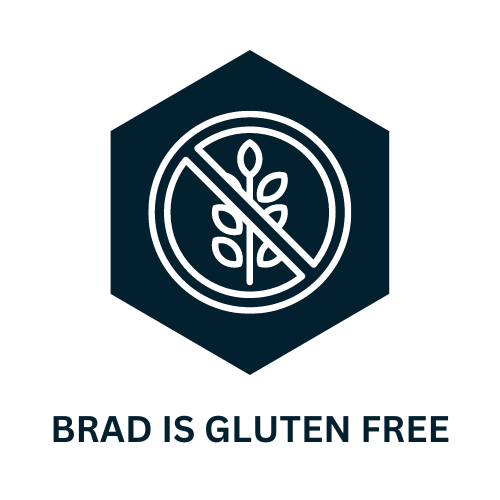Introduction
Welcome to our comprehensive guide that aims to demystify the concepts of gluten and gluten-free living. Whether you’re newly diagnosed with gluten sensitivity, celiac disease, or simply curious about the gluten-free lifestyle, this article will provide you with a thorough understanding of what gluten is and what it means to follow a gluten-free diet.
- What is Gluten?
- Gluten Sensitivity and Celiac Disease
- What Does Gluten-Free Mean?
- Benefits and Challenges of Going Gluten-Free
- Conclusion
What is Gluten?
Definition and Composition
Gluten refers to a group of proteins found in wheat, barley, rye, and their derivatives. The primary proteins in gluten are gliadin and glutenin. When combined with water, gluten forms a sticky network that gives elasticity and structure to dough, providing the characteristic texture to many baked goods.
Role in Food Production
Gluten plays a crucial role in food production as it gives bread its airy texture and helps retain moisture. It acts as a binding agent and stabilizer in various processed foods, including pastas, cereals, and sauces.
Gluten Sensitivity and Celiac Disease
Gluten Sensitivity
Gluten sensitivity, also known as non-celiac gluten sensitivity, is a condition where individuals experience adverse symptoms after consuming gluten, despite not having celiac disease. Symptoms may include bloating, abdominal pain, diarrhea, fatigue, and headaches. While the exact cause is unknown, gluten sensitivity does not involve an autoimmune response or intestinal damage.
Celiac Disease
Celiac disease is an autoimmune disorder triggered by the ingestion of gluten. When individuals with celiac disease consume gluten, their immune system reacts by damaging the lining of the small intestine, leading to various digestive issues and malabsorption of nutrients. Celiac disease requires strict adherence to a gluten-free diet to prevent long-term complications.
What Does Gluten-Free Mean?
Definition of Gluten-Free
The term “gluten-free” refers to foods that are free from gluten or contain gluten in amounts deemed safe for individuals with gluten sensitivity or celiac disease. In many countries, including the United States and the European Union, gluten-free products must contain less than 20 parts per million (ppm) of gluten to be labeled as gluten-free.
Gluten-Free Diet
A gluten-free diet involves avoiding all sources of gluten, including wheat, barley, rye, and cross-contaminated products. It requires careful scrutiny of ingredient labels, as gluten can be hidden in various processed foods, sauces, condiments, and even non-food items like medications and cosmetics.
Benefits and Challenges of Going Gluten-Free
Benefits of a Gluten-Free Diet
- Improved Digestive Health: Individuals with gluten sensitivity or celiac disease can experience relief from gastrointestinal symptoms by eliminating gluten from their diet.
- Management of Celiac Disease: Following a gluten-free diet is essential for individuals with celiac disease to promote intestinal healing and prevent complications.
- Increased Awareness of Food Choices: Adopting a gluten-free lifestyle often leads to increased mindfulness about food ingredients and encourages the consumption of whole, unprocessed foods.
Challenges of a Gluten-Free Diet
- Dietary Restrictions: Eliminating gluten from your diet can present challenges when dining out, traveling, or attending social events that involve shared meals.
- Nutritional Considerations: Gluten-free diets can sometimes be low in certain nutrients, such as fiber, B vitamins, and iron. It’s important to plan a well-balanced gluten-free diet or seek guidance from a healthcare professional or registered dietitian.
Conclusion
In conclusion, gluten is a group of proteins found in wheat, barley, rye, and their derivatives. While gluten sensitivity and celiac disease require strict adherence to a gluten-free diet, many individuals opt for a gluten-free lifestyle for
various reasons. Going gluten-free involves avoiding gluten-containing foods and carefully reading labels to ensure products are gluten-free. While there are benefits to following a gluten-free diet, it’s important to navigate the challenges and ensure proper nutrition. If you suspect gluten sensitivity or celiac disease, consult with a healthcare professional for an accurate diagnosis and guidance on managing your diet. Remember, knowledge and understanding are key to successfully embracing a gluten-free lifestyle.
